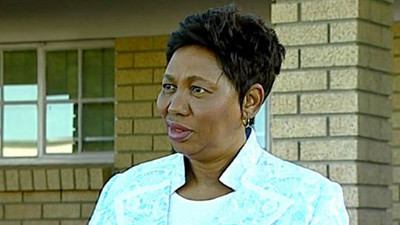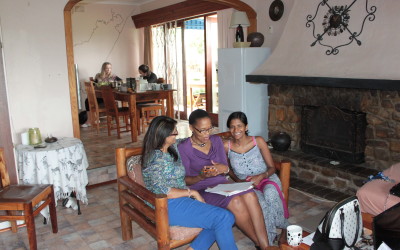News
Soil Transmitted Helminths (STHs) to be treated in National School Deworming Programme
South African Broadcasting Corporation: The Departments of Basic Education, Health and Social Development have today officially launched the national school de-worming programme [for STHs with Mebendazole] at the Zimasa Primary school in Langa. The programme forms part of the integrated school health programme and will focus on health, education and the regular de-worming of children. The programme will be rolled out nationally to all Grade R to 7 learners in quintile one to three primary schools. The Department of Basic Education has partnered with the World Health Organisation and has secured seven million de-worming tablets that will be distributed to the children. Basic Education minister Angie Motshekga, says the schools chosen are all part of the departments pro-poor programme. Motshekga was joined by various stake-holders on a walkabout to the nurses’ rooms where the de-worming tablets and other vaccines will be administered. Five hard facts: Soil transmitted helminths (STHs) in South Africa constitute the worms A. lumbrocoides, T. trichiura, and hookworm. They cause tiredness and stomach problems. Further, these worms and have been found to contribute to cycle of poverty. Repeated treatment is necessary to curb the reinfections The school deworming programme will not treat Bilharzia which is the second most important parasite after Malaria in terms of public health impact in the world. Quintile 1-3 (of five in total) are the poorest schools in South Africa. These schools also have a school feeding programme. Mebendazole is the only the second best choice treatment for these STHs. For T. trichiura Albendazole should be given. Literature Berge ST, Kabatereine NB, Gundersen SG, et al.; Generic praziquantel in South Africa: The necessity for policy change to avail cheap, safe... read moreLast Sunday of January is World Leprosy day
The Leprosy Mission’s Dr Laubscher shared the following message from leprosy patients: They are keen to speak about the disease and address issues of stigma They don’t want other cases to wait for decades for treatment They want to be part of health education They are convinced that there are many undiagnosed cases They don’t want their families to suffer They want to be heard by the Department of Health Their independence is important to them They are interested in economic development of people with disabilities For more information contact Dr Laubscher... read moreAcademic day for BRIGHT PhD candidates and students
PhD Candidates Pavitra Pillay, Nonhlanhla Mbathi and Dr Hashini Galappaththi-Arachchige presented their work, as well as practical and ethical aspects of research on reproductive tract disease. Masters Student and Teacher Edmore Mazani discussed his protocol for use in rural schools and Dr Sigve Holmen (PhD Candidate), Harding Hospital, presented possibilities for diagnostic tools. Our former Masters Student Adele Munsami, now PhD Candidate at CAPRISA presented her upcoming article from the Departments of Psychology and Public Health whilst academic Assistant Lea Nga Tran (MEcon) presented data on teenagers and their willingness to participate in research. Four medical students from Norway visited the project together with Professor Borghild Roald. They did their very first presentations in English and did well: Lynn Duong, Cornelia Kristiansen, Kristine Hjetland and Ingunn... read moreAfrica’s 32 cents solution for HIV/AIDS
Hotez PJ, Fenwick A, Kjetland EF
Exploring the feasibility and possible efficacy of mass treatment and education of young females as schistosomiasis influences the HIV epidemic
Lillerud LE, Stuestoel VM, Hoel RE, Rukeba Z, Kjetland EF
Female genital schistosomiasis–a differential diagnosis to sexually transmitted disease: genital itch and vaginal discharge as indicators of genital Schistosoma haematobium morbidity in a cross-sectional study in endemic rural Zimbabwe
Kjetland EF, Kurewa EN, Ndhlovu PD, Midzi N, Gwanzura L, Mason PR, Gomo E, Sandvik L, Mduluza T, Friis H, Gundersen SG


